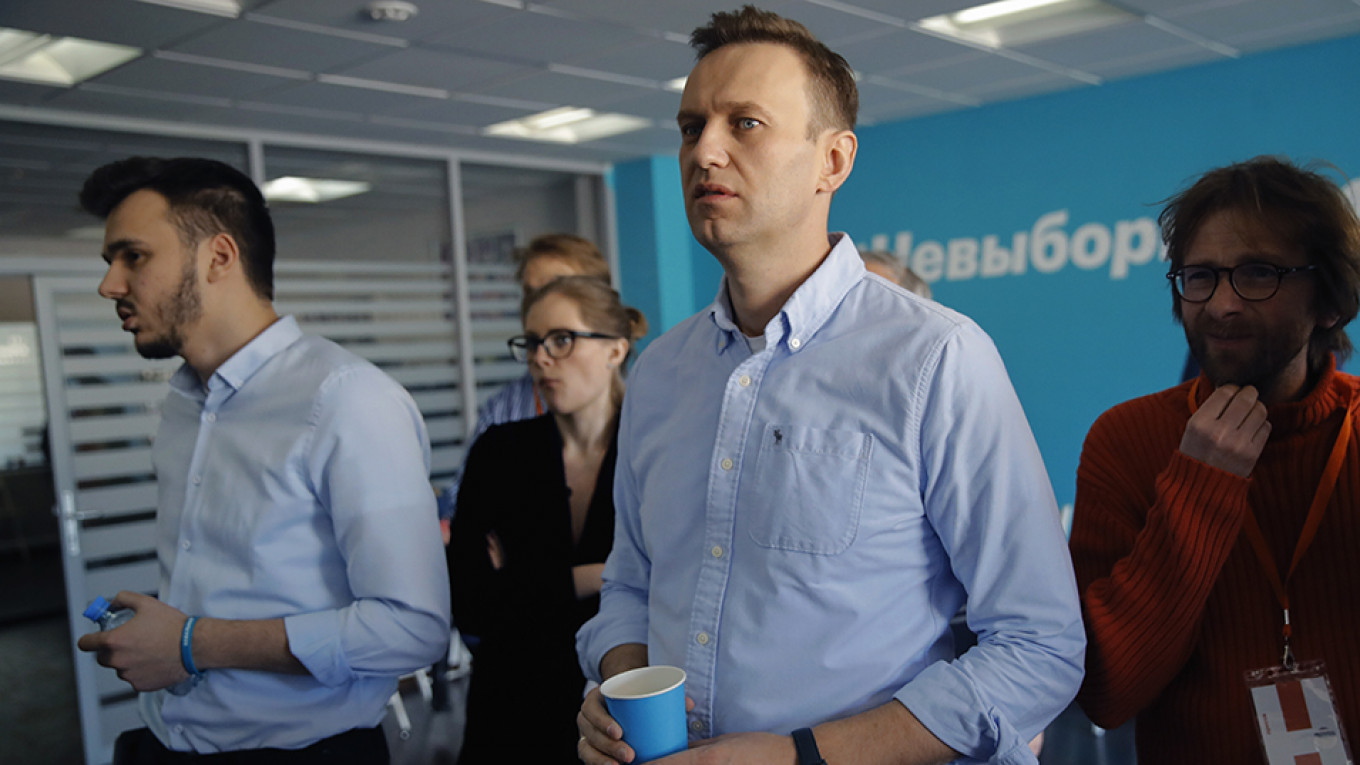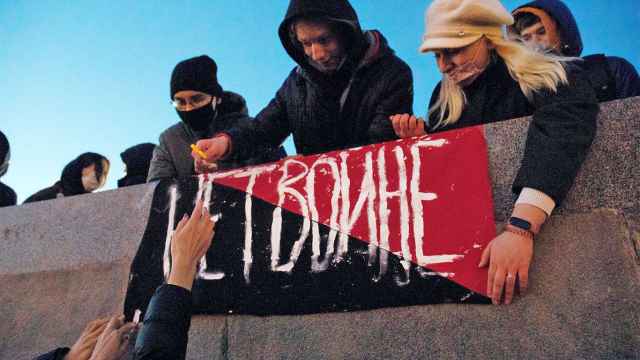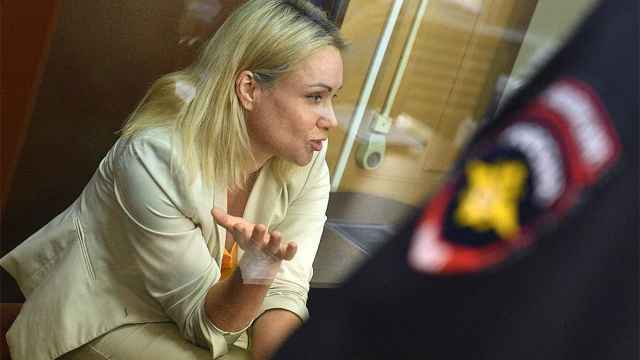Russia's main opposition leader Alexei Navalny said Tuesday that authorities had frozen all of his bank accounts and those of his family, including his elderly parents.
"All accounts have been blocked," Navalny, an anti-corruption campaigner who has emerged as President Vladimir Putin's most prominent critic, said on Twitter.
His spokeswoman Kira Yarmysh told AFP that the accounts had been frozen due to a money-laundering probe against Navalny's Anti-Corruption Foundation.
Navalny said that because of the blocked accounts his daughter, who is a student at Stanford University, was without money and that his retired parents could not receive their pensions.
"This is quite unpleasant, I won't deny it. My parents are elderly people, pensioners," he wrote in a blog post.
"My child is studying at the other end of the planet by herself -- she's been left without a single cent."
He added that his son no longer had access to his savings account.
Investigators last summer launched a money-laundering probe into Navalny's foundation, which seeks donations from the public, accusing it of taking money that was procured illegally.
In August, a Moscow district court froze 75 million rubles ($1.1 million) held in accounts by the foundation and staff members.
Navalny said his personal accounts had until now remained untouched.
Ivan Zhdanov, the director of Navalny's foundation, said authorities had also blocked the bank accounts of his family.
Investigators have repeatedly accused Navalny's foundation of financial crimes, including money laundering and accepting illegal donations, and frozen its accounts.
Navalny organized some of the biggest protests against Putin in recent years.
In the run-up to local elections in September, Navalny and his supporters organized a wave of protests after popular opposition politicians were barred from standing in the Moscow municipal election, prompting a police crackdown.
A Message from The Moscow Times:
Dear readers,
We are facing unprecedented challenges. Russia's Prosecutor General's Office has designated The Moscow Times as an "undesirable" organization, criminalizing our work and putting our staff at risk of prosecution. This follows our earlier unjust labeling as a "foreign agent."
These actions are direct attempts to silence independent journalism in Russia. The authorities claim our work "discredits the decisions of the Russian leadership." We see things differently: we strive to provide accurate, unbiased reporting on Russia.
We, the journalists of The Moscow Times, refuse to be silenced. But to continue our work, we need your help.
Your support, no matter how small, makes a world of difference. If you can, please support us monthly starting from just $2. It's quick to set up, and every contribution makes a significant impact.
By supporting The Moscow Times, you're defending open, independent journalism in the face of repression. Thank you for standing with us.
Remind me later.






